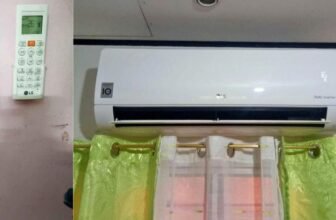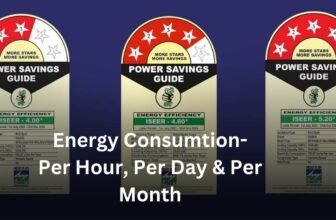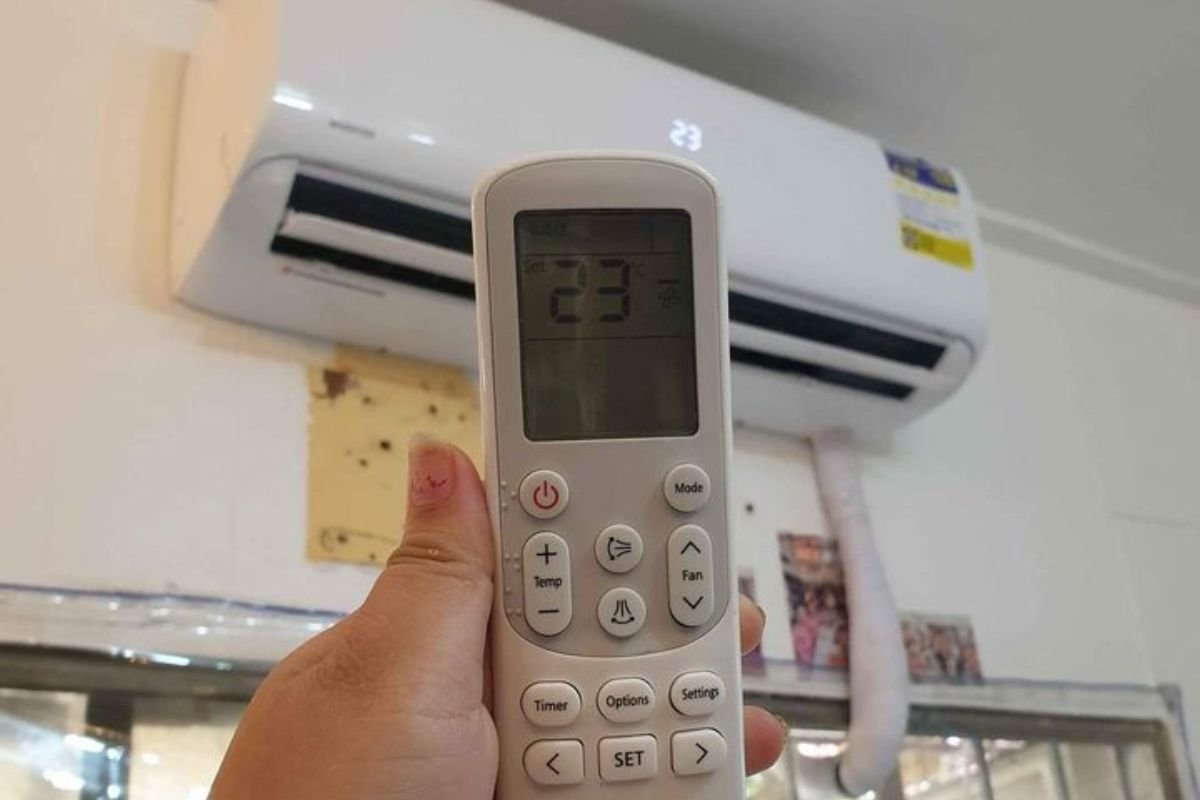
When your air conditioner is not cooling, it can turn a day at home into an uncomfortable experience. Your air conditioning unit is essential for maintaining a cool and pleasant environment, especially during the warmer months. Several issues can hinder the cooling efficiency of your AC, including problems with the air filter, refrigerant levels, or thermostat settings. These aspects are critical to the operation of your air conditioner; if one is not functioning correctly, it could be the reason why your home isn’t being cooled effectively.
Before calling in a professional, there are some checks and fixes that you can perform yourself to potentially resolve the cooling issue. Ensuring that your air filter is clean is a key step; a clogged or dirty filter can restrict airflow, greatly reducing your unit’s ability to circulate cool air. The thermostat settings are another common culprit; they should be adjusted correctly to signal your unit to cool your home. Furthermore, the refrigerant, which is vital for absorbing heat from the air inside your home, may need to be refilled if your system has a leak or hasn’t been maintained appropriately.
Addressing these components can often restore your air conditioner’s functionality. It’s crucial to tackle the problem promptly to return your living space to a comfortable temperature and maintain the efficiency of your air conditioning system. Regular checks and maintenance can keep your AC running smoothly and ensure it provides consistent cool air when you need it most.
Why Is My Air Conditioner Not Cooling?
When your air conditioner isn’t cooling effectively, several factors could be at play:
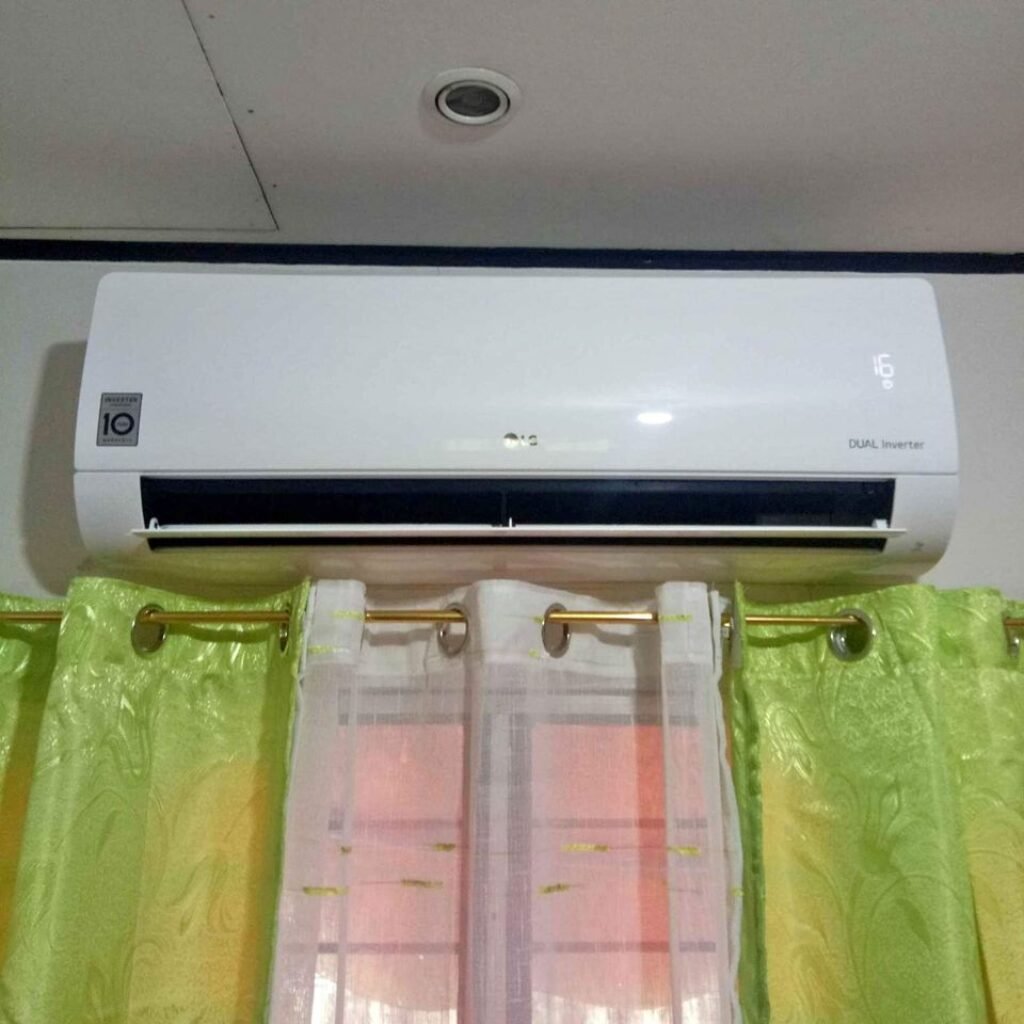
- Air Filter Issues: Your AC’s air filter might be clogged, restricting airflow and significantly reducing cooling capacity. It’s essential to check your air filter regularly and either clean or replace it if you find that it’s dirty.
- Thermostat Problems: If your thermostat is not properly set or malfunctioning, it won’t signal your AC to start cooling. Ensure your thermostat is set to the desired temperature and is reading the room temperature accurately.
- Low Refrigerant Levels: Refrigerant is the substance your air conditioner uses to remove heat and humidity from the air. If the levels are low, possibly due to a leak, your system will struggle to cool the space.
- Compressor Malfunction: The compressor is the heart of your air conditioning system, responsible for pressurising the refrigerant to release heat. A compressor failure can result in no cooling at all.
- Blocked Condenser or Evaporator Coils: Dirt and debris can obstruct your unit’s condenser or evaporator coils. Blocked coils can’t transfer heat effectively, impairing the overall cooling process.
Regular maintenance can prevent most of these issues. If you suspect a more complex problem, such as a refrigerant leak or compressor issue, it’s advisable to consult a professional technician to inspect and repair your unit.
It’s crucial to address these issues promptly to avoid further damage to your air conditioning system and ensure you remain comfortable during warm weather.
How Can I Troubleshoot My AC Not Cooling?
When your air conditioner is not cooling, there are some key steps you can take to troubleshoot the issue. Let’s go through these systematically.
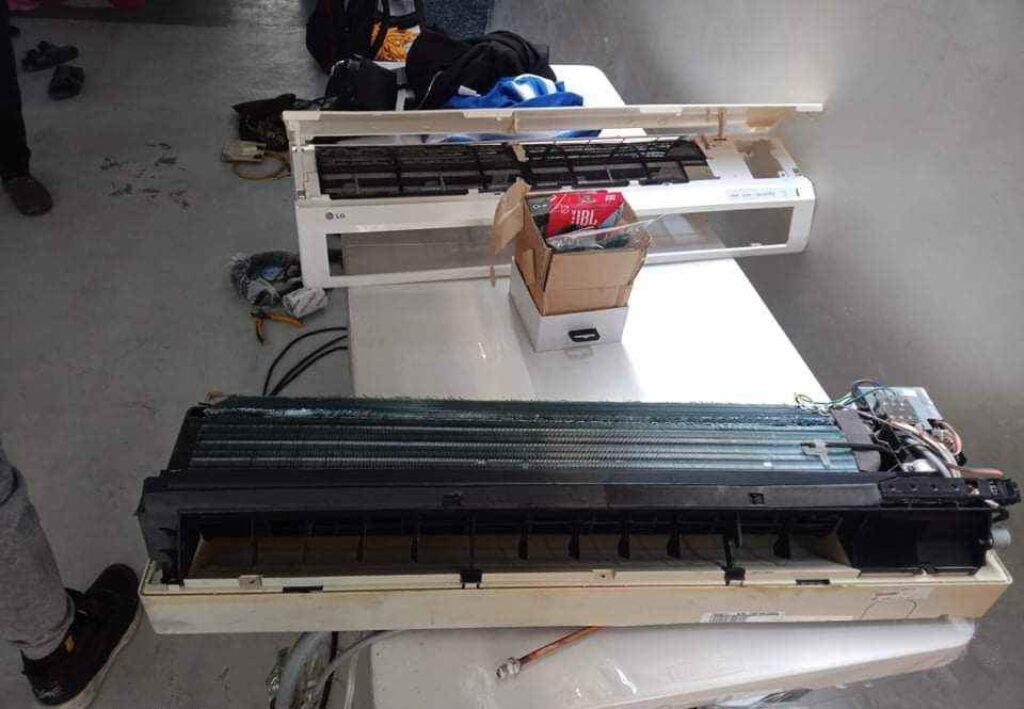
- Cleaning or Replacing the Air Filter: A dirty air filter can hamper airflow and reduce cooling efficiency. Assess your filter for any accumulation of dust and debris. Clean it if it’s washable or replace it with a new one if it’s clogged beyond cleaning.
- Checking the Thermostat Settings: Make sure your thermostat is set to ‘cool’ and ‘auto’ mode, not ‘on’. This ensures the fan only runs when the air conditioner is cooling. Verify the set temperature is below the current room temperature. If necessary, reset or recalibrate the thermostat.
- Inspecting and Adding Refrigerant: Low refrigerant levels could be the culprit. If you suspect a refrigerant leak or low levels, it’s essential to add the correct type of refrigerant. Note: Handling refrigerants usually requires a certified professional.
- Examining the Compressor for Issues: The compressor is crucial for cooling. Check for any signs of damage or listen for unusual noises. An HVAC technician should address compressor problems as they often involve complex repairs or replacement.
- Clearing any Clogs in the Condenser or Evaporator Coils: Check both sets of coils for dirt and clogs. Clean gently but thoroughly to ensure they can effectively release heat. Bent coil fins should also be straightened using a fin comb.
Remember, regular maintenance can prevent many issues before they start. If these steps don’t resolve the problem, it might be time to consult a professional engineer for a detailed diagnosis and repair.
When to Call for Professional AC Repair?
If you’re experiencing continuous inadequate cooling despite going through basic troubleshooting steps like cleaning filters and checking thermostat settings, it might be time to contact a professional. This persistent issue can signal deeper malfunctions that require expert attention.
In the case of persistent warm air output, ensure your thermostat is set correctly and your outdoor unit isn’t obstructed. If the problem persists, this could indicate a problem with the refrigerant levels or compressors – a task for a skilled technician.
Unusual sounds or odours emanating from your AC are often telltale signs that something isn’t right internally. Noises such as grinding, squealing, or buzzing and odours like a burning or musty smell shouldn’t be ignored. A professional can accurately diagnose and resolve these issues, helping to avoid potential safety hazards.
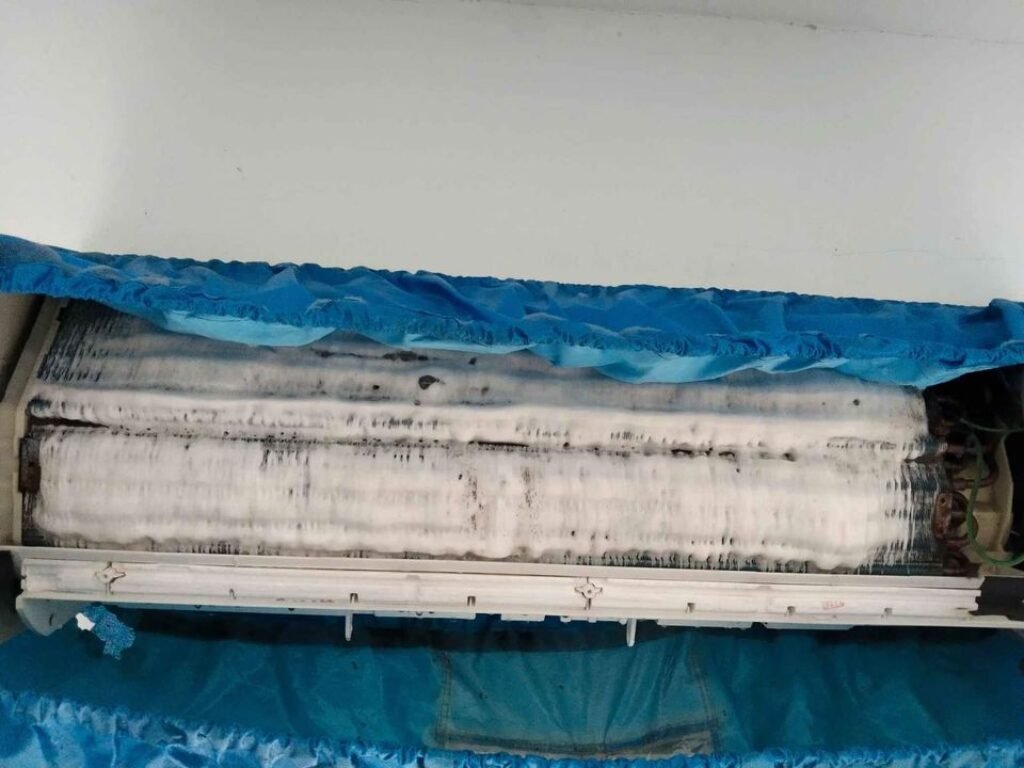
If you observe visible ice formation on AC components such as the evaporator coils, it’s imperative to switch off your system to prevent further damage and contact a technician. This could be a symptom of reduced airflow or low refrigerant levels, both of which require professional intervention.
Lastly, if you’re facing recurrent AC system malfunctions, this may point towards a more systemic issue. Rather than constantly resetting circuit breakers or replacing fuses, a professional repair service can offer a long-term solution.
- Continuous inadequate cooling: Time to call a pro if self-troubleshooting fails.
- Persistent warm air: Check thermostat and outdoor unit; then seek help if unresolved.
- Unusual noises or smells: Could be an urgent safety issue; professional diagnosis needed.
- Visible ice: Turn off the AC and reach out for expert repair.
- Recurrent issues: Break the cycle of temporary fixes with professional repairs.
Regular maintenance can often prevent these problems, but when they do occur, professional support from renowned experts can ensure your air conditioner is efficiently and safely operating.
How to Maintain Air Conditioner for Optimal Cooling?
Regular Air Filter Replacement
Replacing your air conditioner’s filter routinely is crucial. A clean filter ensures optimal airflow and efficiency. Typically, it’s advised to replace or clean filters every one to three months depending on usage and environment.
Annual Professional AC Maintenance
To keep your unit in top condition, schedule annual maintenance with a qualified technician. This will include a thorough inspection and cleaning of essential components, ensuring everything functions correctly.
Keeping Surrounding AC Area Clean and Clear
Ensure the area around your outdoor unit is free of debris and foliage. This helps maintain unobstructed airflow and reduces the risk of overheating.
Monitoring Refrigerant Levels
Your air conditioner’s performance can deteriorate with low refrigerant levels. It’s important to monitor and maintain the correct refrigerant charge, which should only be done by professionals due to the technicality and safety concerns involved.
Scheduling Timely Thermostat Calibration
A properly calibrated thermostat ensures your air conditioner operates efficiently. Have it checked regularly to ensure accurate temperature regulation.
Remember, proper maintenance of your air conditioner extends its lifespan and supports a better cooling experience.
What Are the Common Reasons for AC Not Blowing Cold Air?
If you’re experiencing issues with your air conditioner not blowing cold air, there are several potential culprits to consider. Below are some of the most common reasons for this issue:
Low Refrigerant Levels: Your AC relies on refrigerant to cool the air, and if the levels are low, it can’t effectively perform. Refrigerant can run low due to leaks or long-term depletion.
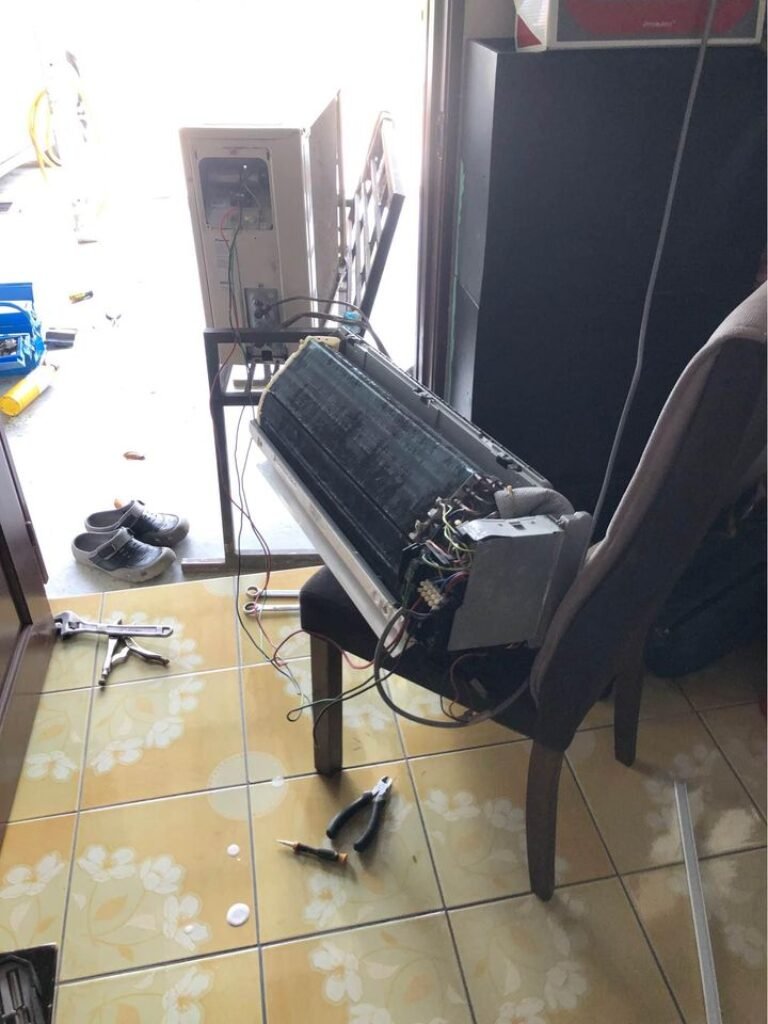
An Air Filter Clog: A clogged air filter restricts airflow, impeding your unit’s efficiency. Make sure you check and replace your air filter regularly to avoid a buildup of dust and debris.
Condenser or Evaporator Coil Blockages: These crucial components can become blocked with dirt and grime, preventing your AC from cooling properly. Keeping the coils clean helps ensure they function as intended.
Thermostat Malfunction: Sometimes, the issue is as simple as incorrect thermostat settings. Verify that your thermostat is set to cool and the temperature is set lower than the current room temperature.
Issues With the AC Fan or Motor: The fan circulates air over the evaporator coil to cool it while the motor drives the fan. Problems with either can result in your AC not delivering cold air.
Remember to check these systems and components if you’re facing cooling issues:
- Refrigerant levels
- Air filter condition
- Coil cleanliness
- Thermostat settings
- Fan and motor operation
Addressing these common problems can often restore your air conditioner’s ability to blow cold air. If you’re unsure or not comfortable handling these issues, it’s advisable to contact a professional for assistance.
How to Fix the Issue and Improve AC Cooling Efficiency?
When your air conditioner isn’t cooling effectively, a few key interventions can often resolve the problem and enhance efficiency.
- Expert Inspection and Repair of the Compressor: Your AC’s compressor is pivotal to its cooling process. If it’s faulty, professional repair is necessary. Damaged compressors need experts for correct diagnosis and replacement.
- Thorough Cleaning of the Condenser and Evaporator Coils: Dirt accumulated on these coils can hinder your AC’s efficiency. Make sure they are cleaned regularly to maintain optimal performance.
- Professional Refrigerant Recharging: Insufficient refrigerant levels can cause poor cooling. It’s important to have a professional recharge the refrigerant to the appropriate level.
- System-wide AC Duct Cleaning: Clogged or dirty ducts restrict airflow. Engage in routine duct cleaning to ensure unrestricted air movement through your AC system.
- Advanced Thermostat Programming and Calibration: Ensure your thermostat is properly calibrated and programmed. Incorrect settings can lead to inadequate cooling.
Regular maintenance and adhering to these steps can substantially improve your air conditioner’s cooling efficiency. Stay proactive with your AC care for enduring comfort.
Five Ways You Can Fix Your Air Conditioner Not Cooling
Replace or Clean the Air Filter
The first step to ensure your air conditioner functions at its optimal efficiency is to regularly replace or clean the air filter. A clogged filter restricts airflow, hindering the unit’s ability to cool your home. Check the manufacturer’s guidelines on how frequently to change the filter, or do it monthly during high-use periods.
Inspect and Correct Thermostat Settings
Your thermostat is the control centre for your AC. Ensure it is set to “cooling” mode and adjust the temperature to a few degrees below room temperature. Proper thermostat settings are essential for efficient operation.
Clear Condenser or Evaporator Coil Blockages

The condenser and evaporator coils can accumulate dirt and debris, which can block the airflow and impede the cooling process. Regularly inspect these coils and gently clean them to prevent blockages. Remember to turn off the unit before attempting any cleaning.
Check and Replenish Refrigerant Levels
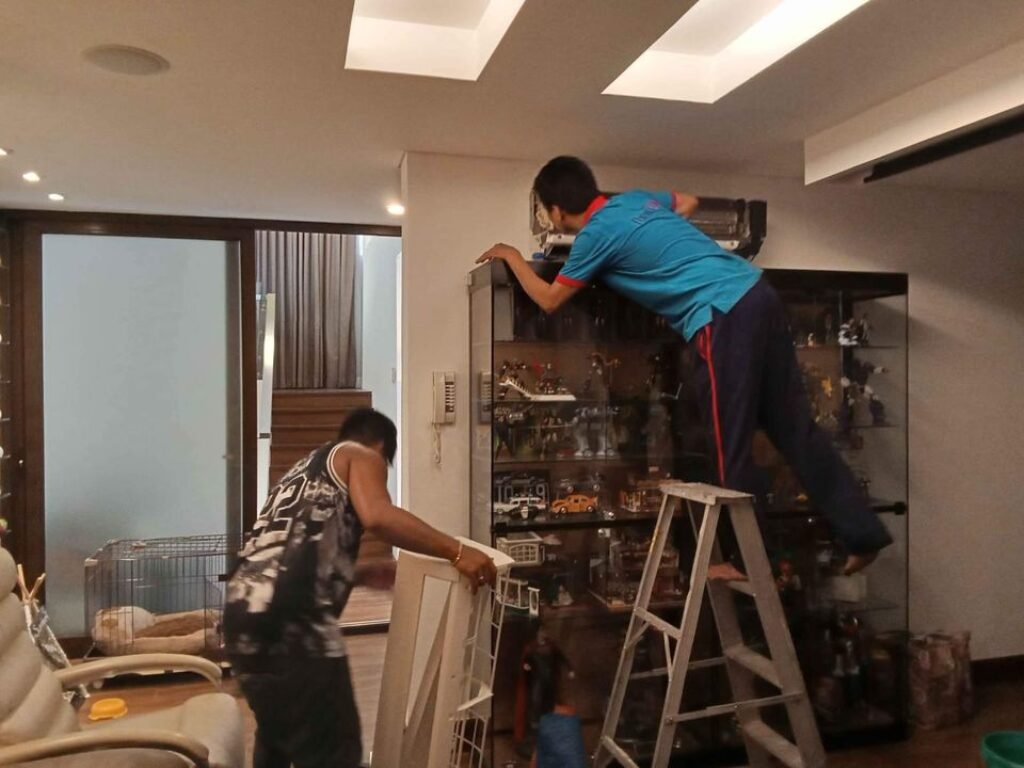
An air conditioner low on refrigerant can’t cool effectively. A telltale sign is the unit blowing warm air or ice forming on the coils. If you suspect refrigerant issues, it may be time to call a professional as handling refrigerants often requires certifications and specialist tools.
Professional Examination of the AC Compressor
The compressor is the heart of your cooling system, and if it’s failing, your AC won’t cool properly. Unusual noises or a tripped circuit breaker can signal compressor issues. Having a certified technician inspect and service your compressor can ensure that any complex issues are properly addressed.
Time to Call for AC Repair?
When your air conditioner stops cooling effectively, you might attempt various troubleshooting methods, such as cleaning filters or checking thermostat settings. If these efforts do not restore your AC’s performance, it could be time to seek professional help. Consider the following signs to determine if you need to call for AC repair:
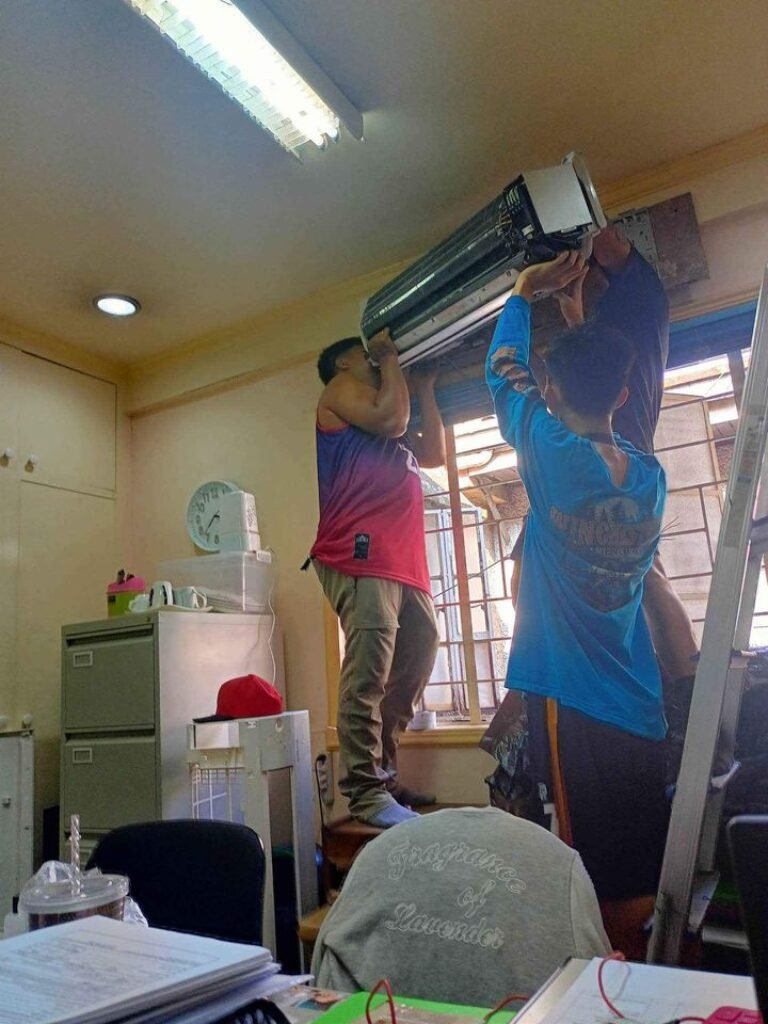
- Persistent Warm Air: If your unit continues to blow warm air despite setting the thermostat correctly and ensuring all windows and doors are shut, the issue might be beyond basic troubleshooting.
- Unusual Noises or Odours: Odd sounds like grinding, squealing, or clattering, as well as unpleasant smells coming from your AC, can indicate internal problems that require expert attention.
- Ice Build-Up: Sometimes, cleaning your AC’s filters and coils doesn’t resolve ice accumulation on the evaporator coils. This could be a symptom of refrigerant issues or airflow problems.
- Recurring Malfunctions: If you encounter repeated issues with your air conditioner, such as frequently tripped circuit breakers or ongoing inefficiency, it’s time to consult a technician.
Here’s a quick checklist to help you assess your AC’s condition:
| Situation | DIY Fix Possible? | Suggested Action |
|---|---|---|
| Warm Air Persists | No | Contact technician |
| Unusual Sounds/Smells | No | Schedule repair |
| Ice Accumulation | No | Seek professional help |
| Ongoing Malfunctions | No | Arrange service call |
If you recognise these signs, don’t hesitate to bring in a professional repair service. An experienced technician can diagnose and solve complex issues that are not safe or suitable for untrained individuals to tackle. It is essential to address these problems sooner rather than later to avoid potential safety risks and further damage to your unit.



